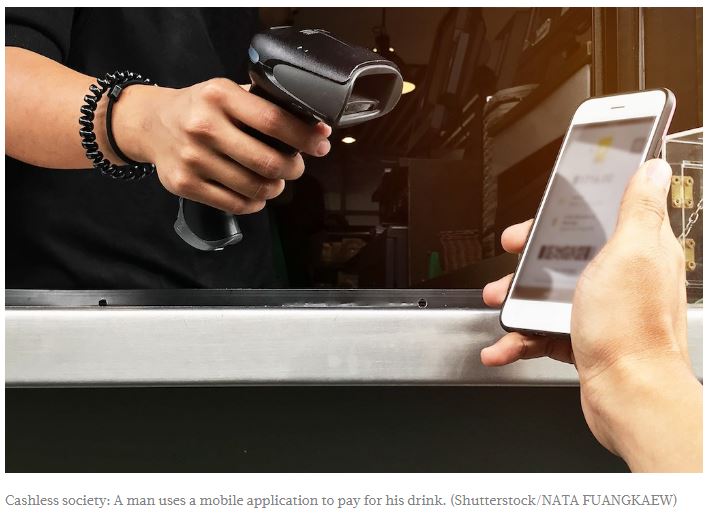Indonesia: Payment platforms should help SMEs go digital: McKinsey
Cashless payment platforms can offer additional facilities to help small and medium enterprises (SMEs) to go digital, amid the rising use of cashless payments during the COVID-19 outbreak, management consulting firm McKinsey has stated.
“In helping SMEs to digitalize, payment services can offer value-added services such as loyalty programs, digital marketing and payroll processing,” Reet Chaudhuri, a senior expert at McKinsey said during a press briefing on Oct. 2.
A recent McKinsey report titled 2020 McKinsey Global Payments Report, showed that global cash usage had decreased 45 percent in over 10 months, showing an accelerated pace of cashless adoption.
Chaudhuri said some governments, especially those from emerging markets such as Indonesia and Mexico, had supported the move to digitize payment.
Indonesian small businesses, which account for more than 60 percent of gross domestic product (GDP) and employ a majority of the labor force, have been hit by the COVID-19 outbreak, as the economy shrank 5.32 percent year-on-year in the second quarter this year.
A separate Mandiri Institute study shows that digitalized micro, small and medium enterprises (MSMEs) can help Indonesia significantly reduce the GDP impact of the pandemic.
The government aims to have 15 million merchants using the Quick Response Indonesia Standard (QRIS) as a payment option by the end of the year, including SMEs. It also aims to have 10 million small businesses board digital platforms to ensure their survival amid the pandemic.
Bank Indonesia (BI) has recorded around 3.6 million micro, small, and medium enterprises (MSMEs) using QRIS as a payment platform, making up 94 percent of merchants that currently use QRIS, it announced on Wednesday.
BI is also pushing for digital onboarding for MSMEs by developing the digital ecosystem and developing the financing access through their financial management application for MSMEs called SI-APIK, the central bank statement reads.
E-wallet LinkAja CEO Haryati Lawidjaja also said digital payment platforms could offer various services such as marketing and access to funding for SMEs.
“Bookkeeping and analytics have also become very crucial for SMEs so they can gather accurate insight to make better decisions for business growth,” she told The Jakarta Post on Tuesday.
Digital payment service Youtap Indonesia reported that it had seen a five-times increase in users and a 4.5-times increase in transactions from June to September.
“The rise in users and transactions is due to the change in the behavior of consumers, who prefer deliveries and cashless payment during the pandemic,” the firm’s CEO Herman Suharto said in a written statement on Oct. 1.
The company’s data showed that 57 percent of cashless payments came from street stalls, restaurants and other culinary business followed by warung (small kiosks) at 20 percent, traditional markets at 8 percent and other services such as laundry with 7 percent.
The cashless payment trend is likely to continue past the pandemic era, McKinsey notes.
“Even when some countries have lifted their lockdown measures, people still use cashless payments,” McKinsey partner Olivier Denecker said during a press briefing on Oct. 2.
Source: https://www.thejakartapost.com/news/2020/10/07/payment-platforms-should-help-smes-go-digital-mckinsey.html


 English
English




